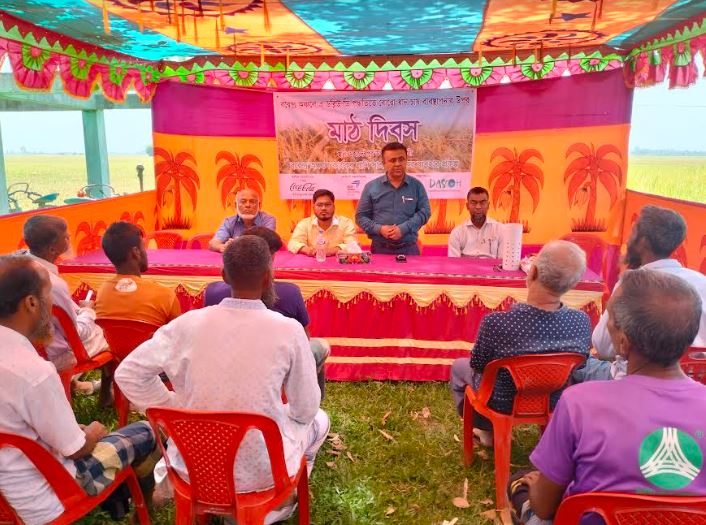
RAJSHAHI, May 9, 2023 (BSS)- Agricultural experts urged the grassroots farmers to apply the irrigation technology of Alternate Wetting and Drying (AWD) as it always saves 25 to 30 percent water compared to the conventional ones.
They attributed that the AWD method helps save water in aquifers amidst an abnormal decline in the level of underground water in the vast Barind tract for the last couple of years.
The experts came up with the observation while addressing a farmers' field day on promotion of AWD technology at Khosalbari area under Mohadebpur upazila in Naogaon district on Monday.
DASCOH Foundation hosted the field day on behalf of its 'Introducing Water Efficient Technologies project (IWET)' Project sponsored by The Coca-Cola Foundation and coordinated by 2030 Water Resource Group (2030WRG).
More than 50 famers and others concerned joined the motivation meeting and the farmers were given knowledge on how to promote irrigation-saving modern technology.
Upazila Agriculture Officer Momrez Ali and IWET Project Manager Shohidul ISlam addressed the meeting as focal persons disseminating their expertise on the issue.
Project Manager of Syngenta Foundation Farhanul Islam and farmers Nazimuddin Abbas, Zakaria Habib and Soukhin Mridha also spoke on the occasion.
The meeting was told that water saving technology is vital to lessening pressure on groundwater. Main thrust of the IWET project is to enhance agro-water efficiency, reduce ground-water extraction and increase farmers' income.
As a whole, it's intended to promote the community approach to make this technology popular and show the economic benefits along with water.
DASCOH Foundation and Syngenta Foundation for Sustainable Agriculture Bangladesh have been demonstrating the AWD and Laser Land Leveling technologies among the Barind farmers since 2018.
Shohidul ISlam said adoption of the method would result in a fivefold reduction in requirement for water and save 30 litres of diesel used for irrigation and produce an additional 500kg of paddy per hectare.
AWD is a water-saving technology that farmers can apply to reduce their irrigation water consumption in rice fields without decreasing its yield.
In AWD, irrigation water is applied a few days after the disappearance of the pond water. Hence, the field gets alternately flooded and non-flooded.
The number of days of non-flooded soil between irrigations can vary from one to more than 10 days depending on the number of factors such as soil type, weather and crop growth stage.
Amid the wider adoption of these technologies, sustainable transformation of Barind agriculture will be achieved through scaling adoption of efficient water management technologies in crop cultivation together with stronger value chain linkage.
The attending farmers were suggested to cultivate wheat instead of only Irri-Boro paddy in the drought-prone dry areas.
Upazila Agriculture Officer Momrez Ali said adoption of the irrigation method in Boro farming on a mass scale can reduce use of underground water by 30 per cent while simultaneously ensuring additional yield.
Groundwater levels in the Barind area have declined alarmingly due to the adverse impacts of climate change and excessive extraction.
'Every year, we have to irrigate over 7.52 lakh hectares of farming fields, including 2.61 lakh hectares of Irri-Boro land, in the region.
For the purpose, we have to operate 14,090 power-driven deep tube wells,' Islam said, adding that irrigation there was dependent on groundwater.